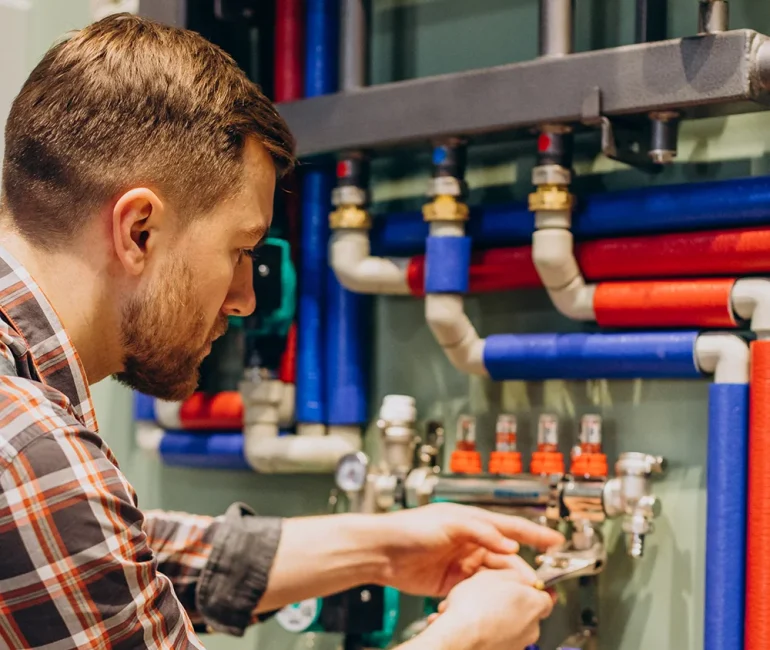As the world becomes increasingly aware of the impacts of climate change, the demand for eco-friendly heating solutions has never been higher. Heating our homes efficiently and sustainably is a crucial step toward reducing our overall carbon footprint. Modern boilers, equipped with advanced technologies, are at the forefront of this green revolution. In this blog, we will highlight the eco-friendly features of modern boilers, such as condensing technology and smart controls, and explain how they contribute to a greener planet.
The Environmental Impact of Traditional Boilers
According to Farrel MacKennon CEO of London City Plumbers company “Traditional boilers, especially those more than a decade old, tend to be inefficient and environmentally unfriendly. These systems typically operate at efficiency levels of 60-70%, meaning a significant portion of the fuel they consume is wasted. This inefficiency not only results in higher energy bills but also contributes to greater carbon emissions”.
Key Issues with Traditional Boilers:
- High Fuel Consumption: Inefficient combustion processes mean that traditional boilers require more fuel to produce the same amount of heat as modern systems.
- Excessive Emissions: The combustion of fossil fuels in traditional boilers releases a large amount of carbon dioxide (CO2) and other greenhouse gases into the atmosphere.
- Pollution: Older boilers often emit nitrogen oxides (NOx) and sulfur dioxide (SO2), which contribute to air pollution and have adverse health effects.
Eco-Friendly Features of Modern Boilers
Modern boilers have been designed with eco-friendliness and efficiency in mind. Here are some of the key features that make them environmentally superior to traditional models:
1. Condensing Technology: Condensing boilers are highly efficient because they capture and reuse heat from exhaust gases that would otherwise be lost. This process involves condensing the water vapor in the exhaust gases to recover latent heat, which is then used to preheat the incoming cold water.
Benefits of Condensing Technology:
- Higher Efficiency: Condensing boilers can achieve efficiency levels of 90% or higher, significantly reducing fuel consumption.
- Lower Emissions: By using less fuel, these boilers produce fewer CO2 emissions, contributing to a smaller carbon footprint.
- Reduced Energy Bills: The improved efficiency translates to lower energy bills, making condensing boilers cost-effective in the long run.
2. Smart Controls: Modern boilers often come with smart controls and programmable thermostats, allowing homeowners to manage their heating systems more efficiently. These controls can be integrated with home automation systems and operated remotely via smartphones or tablets.
Advantages of Smart Controls:
- Optimized Heating Schedules: Smart controls allow users to set heating schedules based on their daily routines, ensuring that the boiler only operates when needed.
- Energy Savings: By reducing unnecessary heating, smart controls help minimize energy consumption and lower utility bills.
- Enhanced Comfort: Smart thermostats can learn user preferences and adjust heating patterns automatically, maintaining optimal comfort levels.
3. Modulating Burners: Modern boilers are equipped with modulating burners that adjust the flame size and heat output according to the current demand. This feature prevents the boiler from cycling on and off frequently, which can waste energy and increase wear and tear.
Benefits of Modulating Burners:
- Consistent Temperature: Modulating burners provide a more consistent indoor temperature by adjusting the heat output precisely.
- Increased Efficiency: By matching the heat output to the demand, modulating burners improve the overall efficiency of the boiler.
- Extended Lifespan: Reduced cycling helps prolong the life of the boiler and reduces maintenance costs.
4. Improved Heat Exchangers: The heat exchanger is a critical component of any boiler, responsible for transferring heat from the combustion process to the water circulating in the system. Modern boilers use advanced materials and designs to enhance the efficiency and durability of heat exchangers.
Advantages of Advanced Heat Exchangers:
- Better Heat Transfer: Modern heat exchangers are designed to maximize heat transfer, improving the boiler’s efficiency.
- Corrosion Resistance: Using materials like stainless steel and aluminum, modern heat exchangers are more resistant to corrosion, ensuring longevity.
- Lower Maintenance: Improved designs reduce the likelihood of buildup and blockages, minimizing maintenance needs.
How Modern Boilers Contribute to a Greener Planet
By incorporating these eco-friendly features, modern boilers play a significant role in reducing the carbon footprint of home heating. Here are some of the ways they contribute to a greener planet:
1. Significant Reduction in CO2 Emissions: The high efficiency of modern boilers means they consume less fuel to produce the same amount of heat, resulting in lower carbon dioxide emissions. Given that home heating is a major source of residential CO2 emissions, upgrading to a modern boiler can make a substantial impact.
2. Improved Air Quality: By emitting fewer pollutants like NOx and SO2, modern boilers help improve local air quality. This reduction in harmful emissions contributes to better respiratory health for residents and reduces the overall environmental burden.
3. Integration with Renewable Energy: Many modern boilers are designed to work seamlessly with renewable energy sources, such as solar thermal systems and heat pumps. Integrating these systems can further reduce reliance on fossil fuels and enhance the sustainability of home heating solutions.
4. Encouraging Sustainable Practices: The use of smart controls and programmable thermostats encourages homeowners to adopt more sustainable heating practices. By optimizing heating schedules and reducing unnecessary energy use, these technologies promote energy conservation.
The Role of Boiler Installation Services
For homeowners considering an upgrade, professional boiler installation services are essential to ensure that the new system operates at peak efficiency. Proper installation is critical for maximizing the benefits of modern boilers and achieving the desired environmental impact.
Choosing the Right Installer:
- Expertise: Look for installers with experience and certification in installing high-efficiency boilers.
- Reputation: Choose a reputable service provider like London City Plumbers, known for their quality workmanship and customer service.
- Support: Ensure the installer offers comprehensive support, including maintenance and emergency services.
Conclusion
Modern boilers represent a significant advancement in home heating technology, offering higher efficiency, better performance, and a reduced environmental impact. By incorporating features such as condensing technology, smart controls, modulating burners, and improved heat exchangers, these boilers help reduce carbon footprints and promote sustainable living.
Upgrading to a high-efficiency boiler is a smart investment for both the environment and your wallet. With the help of professional boiler installation services, you can ensure that your new boiler is installed correctly and operates efficiently, contributing to a greener, more sustainable future.
As we continue to face the challenges of climate change, making eco-friendly choices in our homes is more important than ever. By switching to a modern, high-efficiency boiler, you can play your part in reducing carbon emissions and protecting our planet for future generations.




Leave a Reply